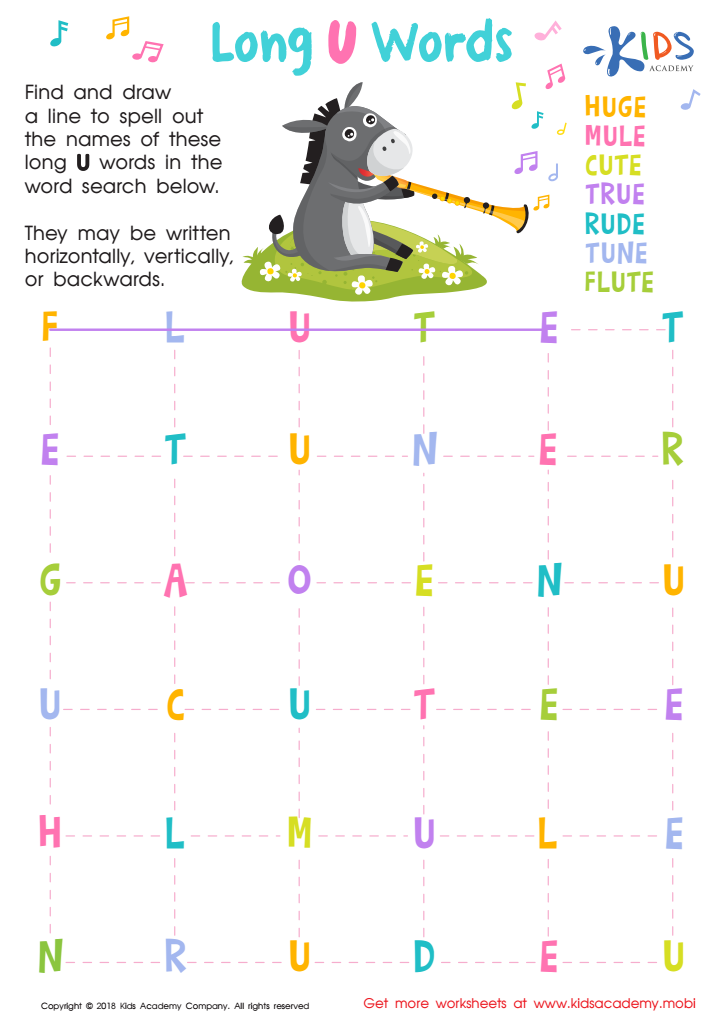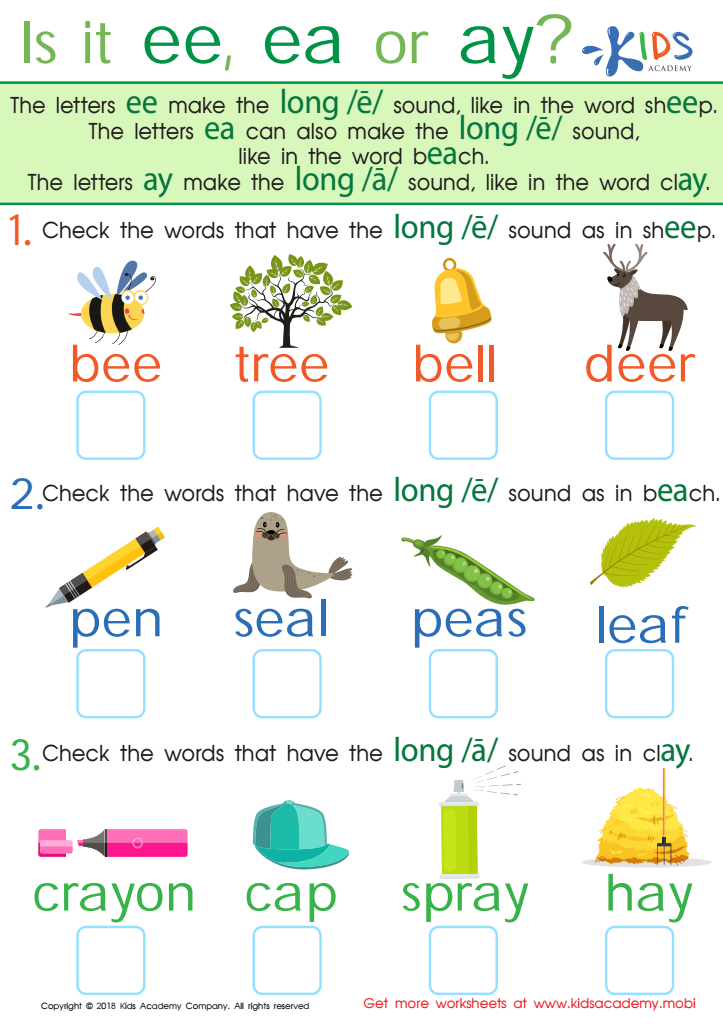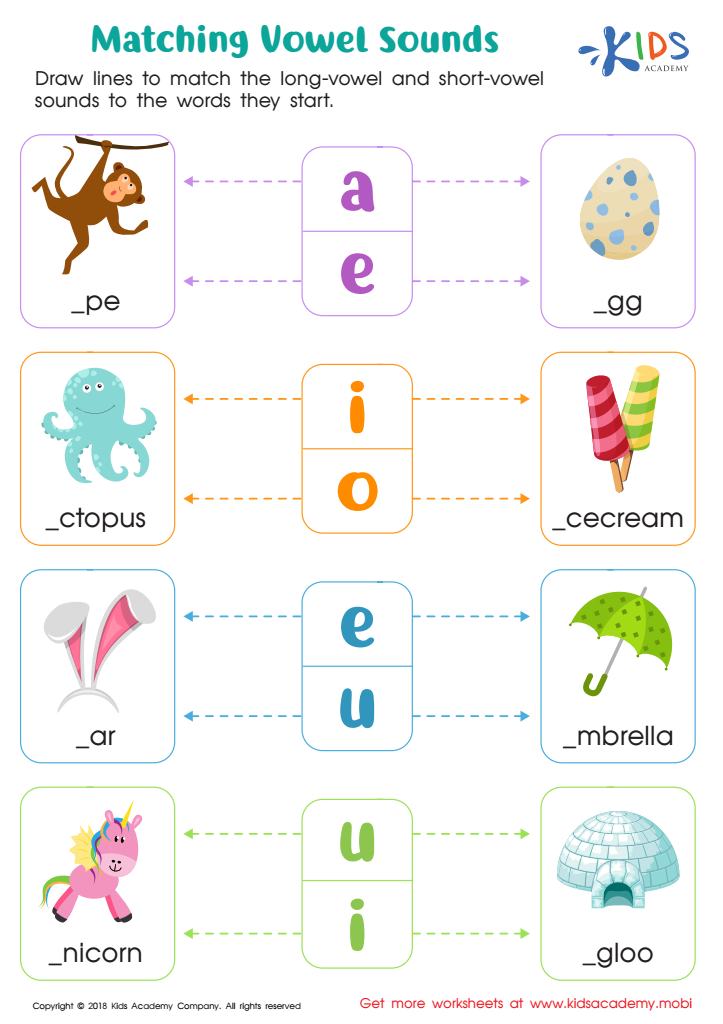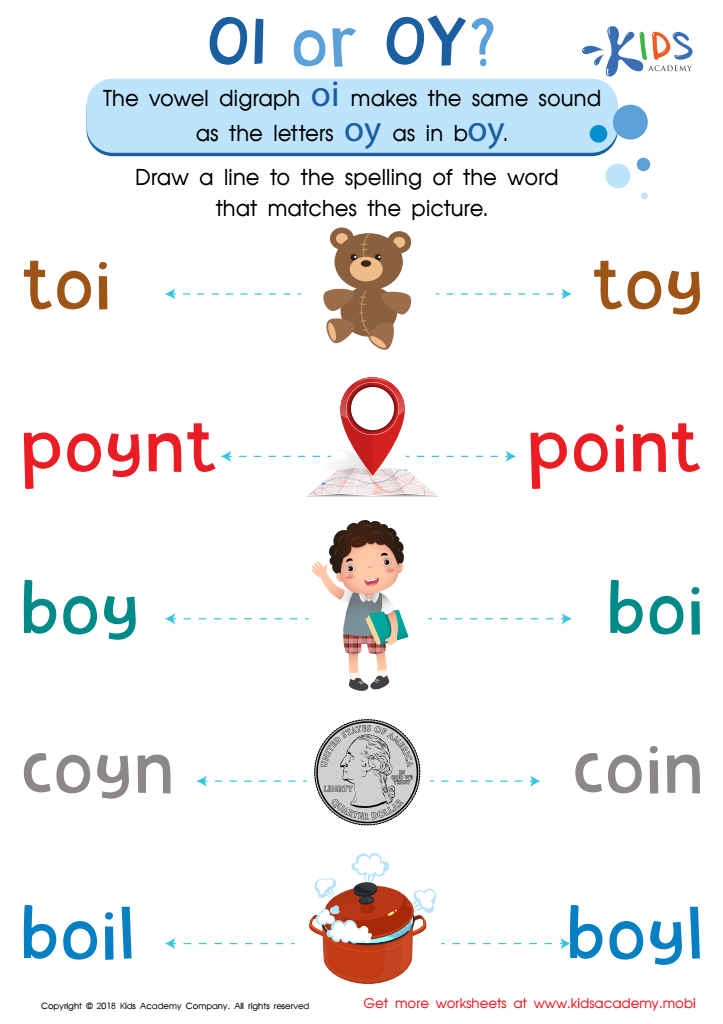Reading proficiency Normal Vowels Worksheets for Ages 5-8
5 filtered results
-
From - To
Boost your child's reading proficiency with our engaging Normal Vowels Worksheets, specially designed for children aged 5-8! These interactive worksheets focus on essential vowel recognition and sound skills, helping young learners improve their reading abilities in a fun and effective way. Featuring a variety of exercises, including matching vowels, filling in the blanks, and sound identification activities, these resources enhance early literacy skills while keeping kids entertained. Perfect for home or classroom use, our worksheets encourage independent learning and reinforce foundational skills needed for successful reading. Empower your child’s literacy journey today with our captivating vowel worksheets!


Long /u/ Words Worksheet


Is It EE, EA, or AY? Worksheet


Matching Vowel Sounds Worksheet


Long and Short U Worksheet


Reading: OI and OY Worksheet
Reading proficiency, particularly with normal vowels, is crucial for children aged 5-8 as it lays the foundation for their literacy skills. During these formative years, children are introduced to the complexities of language, with vowels playing a vital role in phonetics. Proficient reading not only enhances vocabulary but also empowers children to decode words effectively, facilitating comprehension and overall communication skills.
Parents and teachers should prioritize this aspect of literacy because it directly influences a child's academic success. Proficient readers are more likely to engage with texts across subjects, leading to better performance in school. Furthermore, a strong grasp of vowels aids in spelling and writing, promoting confidence in their abilities.
Moreover, reading proficiency fosters a love for literature, encouraging children to explore diverse topics and ideas. This exploration enriches their cognitive development and critical thinking. Lastly, early reading skills are closely linked to self-esteem; children who struggle may feel frustration or embarrassment, while those who excel develop a sense of achievement.
In short, prioritizing normal vowel recognition and reading proficiency during these critical years is essential for a child's educational journey, personal growth, and lifelong love for learning.
 Assign to My Students
Assign to My Students
















